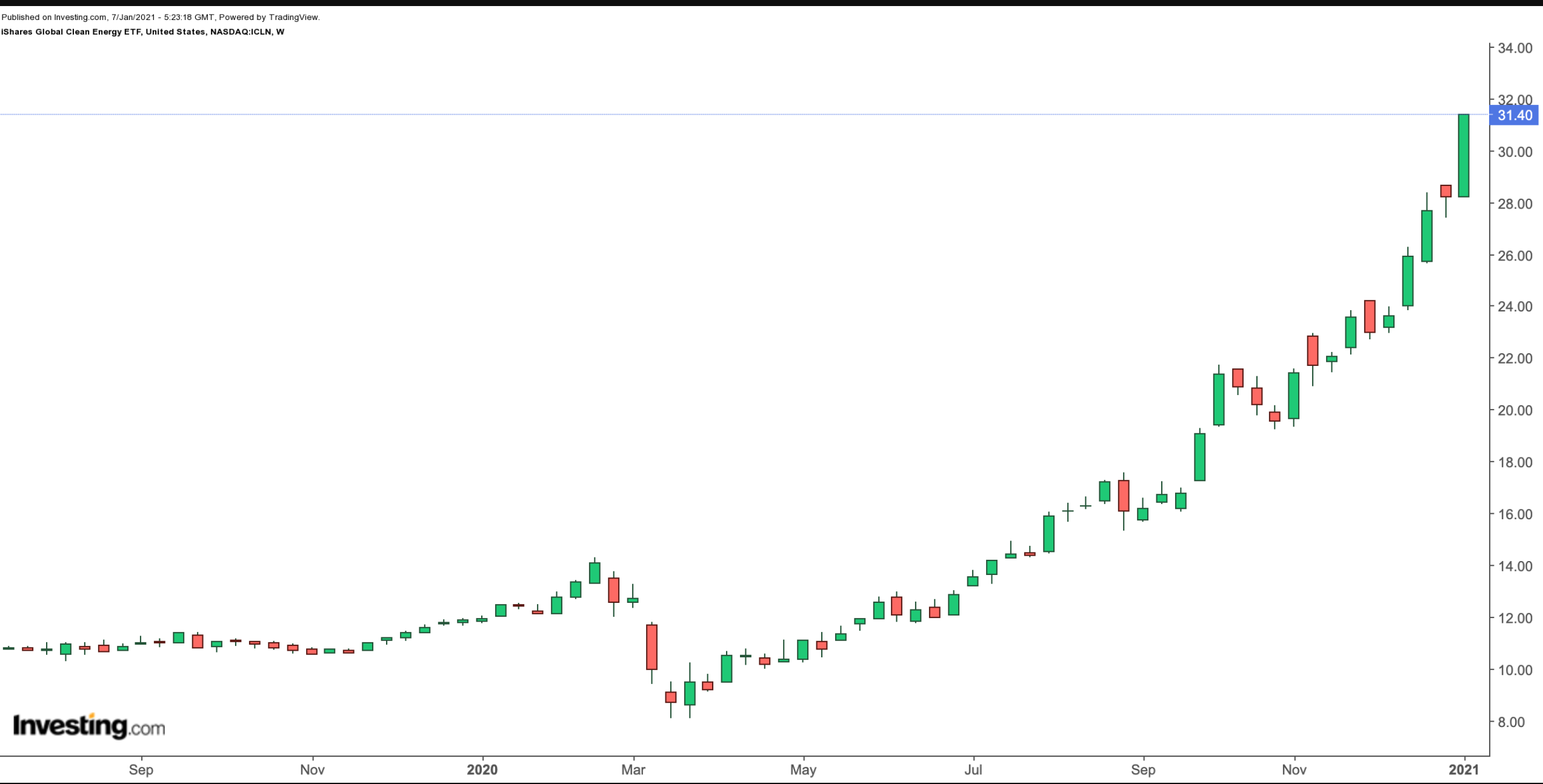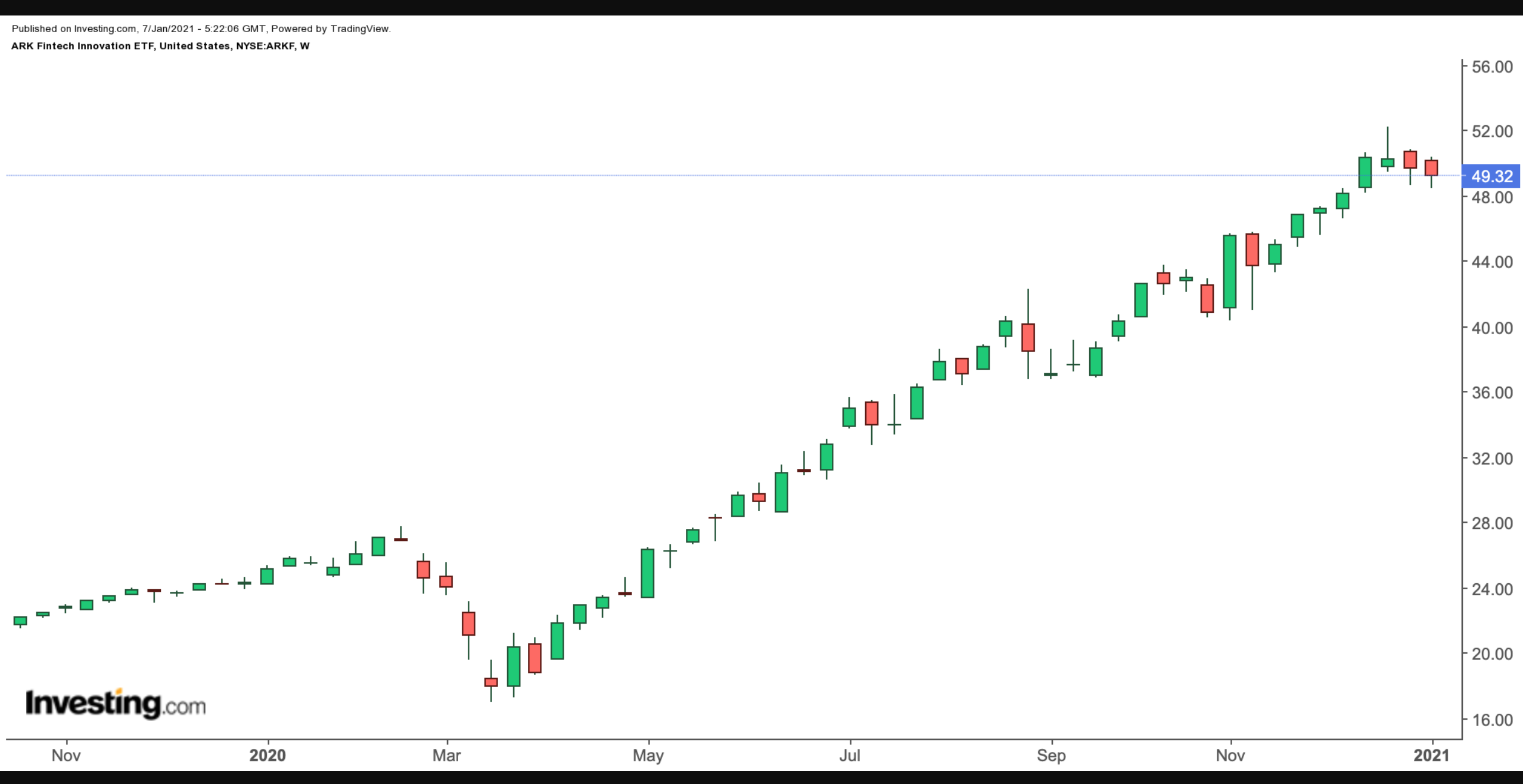A new year typically means renewed hopes for many people. It is also a good time for retail investors to review long-term portfolio holdings.
Concerns about how COVID-19 could affect some sectors were short lived in 2020, considering how robust the returns have been in many shares. On the other hand, 2021 has so far seen increased volatility in many shares.
In recent articles, we discussed}} several industries, asset classes and exchange-traded funds (ETFs) that are likely to do well in 2021, including those that could benefit from the January effect. Today's discussion introduces two more ETFs that could help investors put together a diversified buy-and-hold portfolio.
1. iShares Global Clean Energy ETF
Current price: $31.40
52-week range: $8.08 - $29.46
Dividend yield: 0.29%
Expense ratio: 0.46%
The iShares Global Clean Energy ETF (NASDAQ:ICLN) gives access to global firms producing energy from renewable sources, including sun, wind, and water. The fund also invests in alternative energy technology companies that manufacture equipment focusing on bio-fuel, hydro-electric turbines, and photovoltaic and fuel cells.

Concerns over climate change and resource scarcity are bringing significant attention to these businesses. The pandemic has also led to more discourse on avoiding future global crises, especially regarding the environment.
ICLN, which tracks the S&P Global Clean Energy Index, has 30 holdings. Since its inception in June 2008, net assets have grown to $4.7 billion.
The top three sectors of the fund include renewable electricity (28.1%), semiconductor equipment (20.0%), electrical components and equipment (16.1%), semiconductors (11.1%) and electric utilities (15.03%).
Around 32% of the companies come from the US, followed by China (10.07%), New Zealand (10.02%), Denmark (8.89%) and Spain (6.54%). The 10 largest holdings constitute about half of the fund. Plug Power (NASDAQ:PLUG), Enphase Energy (NASDAQ:ENPH), Meridian Energy (NZ:MEL), Xinyi Solar (HK:0968), Verbund (OTC:OEZVY) are among the leading names.
Over the past year, ICLN is up close to 165% and hit a record high on Jan. 6. Respective trailing P/E and P/B ratios are 42.32 and 4.79. A potential price decline toward $25 would make the fund more attractive for long-term investors.
2021 is likely to see a continuation of commercially viable renewable energy projects, products and services. With a new Washington administration as of Jan. 20, we expect to see further growth in the alternative energy space in the US, followed by increased global adoptions.
2. ARK Fintech Innovation ETF
Current Price: $49.32
52-Week Range: $16.94 - $52.21
Dividend Yield: N/A
Expense Ratio: 0.75%
Our next fund also focuses on an emerging trend that is receiving increased investor focus, financial technology (fintech). The ARK Fintech Innovation ETF (NYSE:ARKF) invests in businesses that use technology to alter how the financial sector works.
The fund provides access to global fintech innovators that focus on mobile payments, online financial transactions, digital wallets, peer-to-peer (P2P) lending, blockchain technology, which is used by most cryptocurrencies, as well as risk management. Analysts concur that many of these products and services are disruptive and could lead to high revenues and eventual profits.

As an actively-managed fund, ARKF typically has 35-55 holdings. Founded in February 2019, assets under management now top $2 billion.
Information technology (IT) has the highest sectoral allocation with 39.8%, followed by communication services (24.0%), financials (18.3%) and consumer discretionary (15.7%). More than 45% of the holdings are in the top 10 stocks.
The top five names in the ETF are Square (NYSE:SQ), a commerce ecosystem and mobile payment processor founded by Jack Dorsey, CEO of Twitter (NYSE:TWTR), online real estate platform Zillow (NASDAQ:ZG) (NASDAQ:Z), Argentina-based e-commerce group MercadoLibre (NASDAQ:MELI), China-based tech giant Tencent (OTC:TCEHY)) and Intercontinental Exchange (NYSE:{{7907|ICE), which operates numerous global exchanges including the New York Stock Exchange (NYSE).
The past year has meant returns of over 100% for long-term investors in ARKF. Given the upcoming earnings season, many stocks in the fund are likely to be volatile and possibly come under short-term pressure.
However, life under the pandemic has led to more financial transactions online and we believe fintech innovators will continue to disrupt mainstream financial and banking products. Potential investors could consider buying the dips in the ETF.
